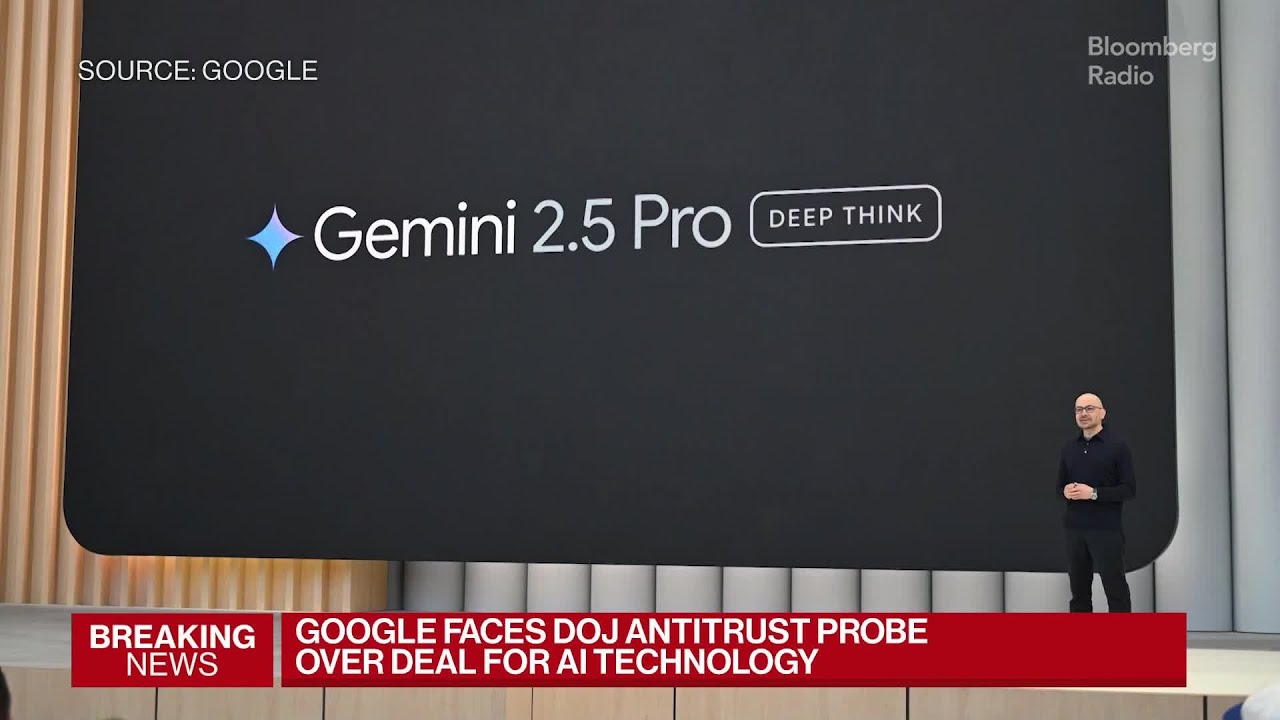The video explains how Google, Microsoft, and Amazon are using licensing deals with AI startups to access advanced AI technology while avoiding full acquisitions, partly due to regulatory concerns. The DOJ is now investigating whether these licensing arrangements could be anti-competitive, but overall, regulators seem to favor a cautious approach that allows tech giants to continue innovating and expanding in AI.
The video discusses recent activities by major tech companies—Google, Microsoft, and Amazon—in acquiring or licensing AI startups in 2024. Google licensed AI technology from Character AI for nearly $2.5 billion, while Microsoft did similar with Inflexion, and Amazon with ADAPT. These arrangements were not outright acquisitions but licensing deals that allowed the companies to retain the startups’ independence while integrating their technology and talent. This approach was partly driven by regulatory concerns, notably from FTC Chair Lina Khan, who was cautious about large acquisitions, prompting these companies to find alternative ways to access innovative AI talent and technology.
Unlike Microsoft’s investment in OpenAI, where they hold a 49% stake and the company remains independent, these licensing deals involved the startups continuing to operate separately, with their employees contributing to the larger tech firms’ projects. The licensing model allowed Google, Microsoft, and Amazon to effectively bring AI talent into their fold without the complexities and regulatory scrutiny of full acquisitions. The significant sums involved, especially Google’s $2.5 billion licensing fee, surprised many observers, highlighting the high value placed on AI technology and expertise in the current market.
The investigation by the U.S. Department of Justice (DOJ) into these deals is a key development. While the companies managed to execute these licensing arrangements smoothly, the DOJ is now scrutinizing whether these practices could be anti-competitive or violate antitrust laws. The regulatory environment appears to be shifting towards more oversight of big tech’s strategic moves, although so far, the overall stance seems to favor a pro-deal-making approach, with recent large acquisitions like Google’s $32 billion deal indicating a continued appetite for mergers and investments in AI.
From an investor and Silicon Valley perspective, the regulatory outlook remains somewhat optimistic. The current administration seems to be more lenient, encouraging deal-making and innovation, as evidenced by recent big mergers and acquisitions. While investigations are ongoing, the general sentiment is that these regulatory actions may result in fines or behavioral changes rather than outright bans or breakups. Historically, regulatory challenges, such as those faced by Microsoft in the 1980s and 1990s, have eventually been resolved without long-term damage to the companies involved.
Overall, the video suggests that while regulatory scrutiny is increasing, it is unlikely to significantly hinder the growth and innovation of major tech firms in the near term. The potential consequences are mainly financial penalties or minor behavioral adjustments, rather than fundamental disruptions. The focus remains on how these companies can continue to innovate and expand their AI capabilities, with regulators seemingly more interested in ensuring fair competition rather than dismantling dominant players.
